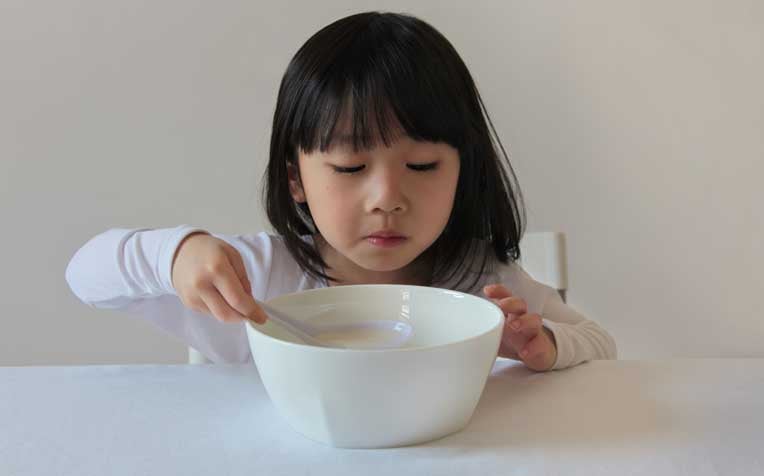HealthXchange will NEVER ask you to transfer money over a call. If in doubt, call the 24/7 ScamShield helpline at 1799, or visit the ScamShield website at www.scamshield.gov.sg.
Picky Eating in Children: It Could Be a Medical Disorder

Picky eating in children can be treated with the help of therapists and parents.
Causes of picky eating
While picky eating is often due to behavioural and sensory issues, there are instances where it is caused by a medical issue. Sri Devi Mageandran, Senior Speech-Language Therapist at the Rehabilitation Department, KK Women’s and Children’s Hospital (KKH), a member of the SingHealth group, shares more on the medical causes and treatment of picky eating.
- Oral motor difficulty: Another reason for picky eating could be an underlying oral motor difficulty where the child actually doesn’t know how to move the food in the mouth or bite and chew on it. Or the child may have fine motor difficulties in handling the food.
- Medical issue: Picky eating can also be caused by a medical problem such as gastroesophageal reflux disease (GERD) in which the stomach contents flow backwards into the food pipe, causing pain and discomfort. Children who suffer from this condition can develop an aversion to eating.
Treating picky eating
Picky eating can be treated by an occupational therapist (OT) who can assess and manage the child’s sensory difficulties and help unlearn bad mealtime habits that have been reinforced over the years. A speech-language therapist (SLT) can help a child with oral motor difficulties. Together, the OT and the SLT work on gradually facilitating the child’s acceptance of less preferred foods. Treatment can take weeks.
Through play and other positive means, the child is taught to accept a wider variety of foods and to eat without distractions. For instance, if the child is used to watching TV while eating, TV time can slowly be cut down from 30 to 10 minutes, in five-minute decrements.
“We identify aspects of the mealtime that can be improved and then we work with the parents to slowly make those changes. It’s a shared responsibility,” Ms Mageandran explains.
KK Women’s and Children’s Hospital (KKH) runs a Speech Therapy and Occupational Therapy (SPOT) feeding clinic for children who are fussy eaters. Set up in 2006, the clinic sees 16-20 picky eaters every week.
Therapy includes training the parents to reinforce positive mealtime behaviours. Parents can also expose the child to new foods, by serving the child the dishes they are eating at the dining table.
“Severe picky eating may result in the child not receiving adequate nutrition so they may end up losing weight and having reduced growth,” says Ms Mageandran. That’s why it’s important to treat the condition early, before it affects the child’s growth and development.
Ref: T12
Related Articles
Public Events
© 2025 SingHealth Group. All Rights Reserved.
















